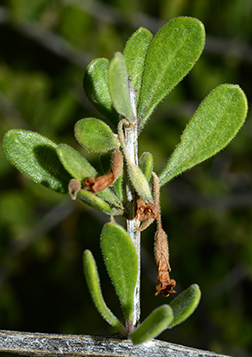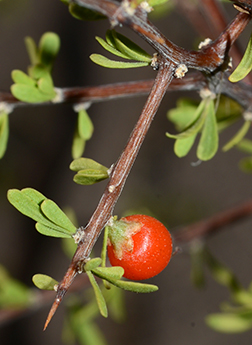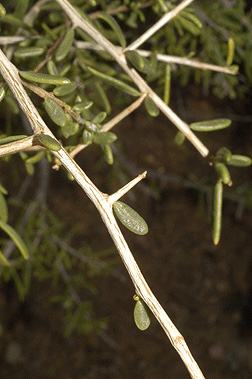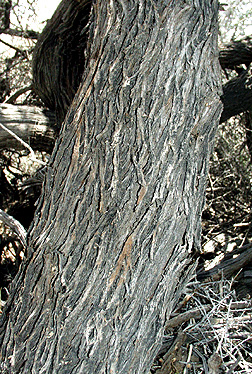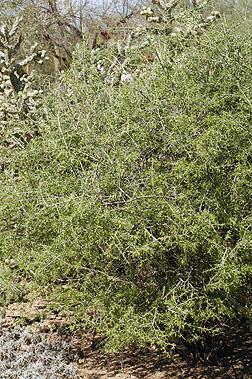 Virginia Tech Dendrology
Virginia Tech Dendrology
Anderson boxthorn Solanaceae Lycium
andersonii A. Gray
![]()
![]() symbol: LYAN
symbol: LYAN
Leaf: Alternate, simple, drought deciduous, 1/4 to 1 inch long, broadly obovate to spatulate, entire margins, finely hairy, blue to gray-green, somewhat thickened (thickness known to vary by variety).
Flower: Species is monoecious; narrow tubular, 5 lobed, 1/4 to 3/8 inch long, light purple to nearly white, appearing in late winter to early spring.
Fruit: Fleshy orange-red, oval berries (resemble small tomatoes), 3/8 inch long, hang downward, ripen in spring, edible.
Twig: Stiff, light brown but turning gray, and spine-tipped, leaves appear on short spurs.
Bark: Irregular, interlacing, shallow furrows with shreddy flat ridges.
Form: Densely branched, spiny, rounded shrub up to 8 feet tall (most often 3 to 5 feet).
Looks like: Baja desert-thorn
- Fremont's desert-thorn
- bitter condalia
- blackbrush
Additional Range Information: Lycium andersonii is native to North America. Range may be expanded by planting. Download the full-size PDF map.
External Links: USDAFS FEIS Silvics - USDA Plants Database
All material 2025 Virginia Tech Dept. of Forest Resources and Environmental Conservation; Photos and text by: John Seiler, Edward Jensen, Alex Niemiera, and John Peterson; Silvics reprinted from Ag Handbook 654; range map source information
